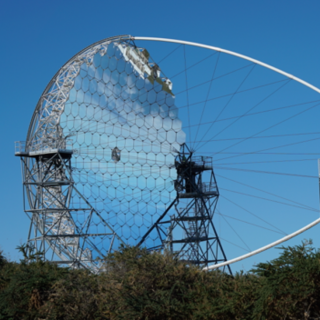Bibcode
Aleksić, J.; Antonelli, L. A.; Antoranz, P.; Backes, M.; Baixeras, C.; Barrio, J. A.; Bastieri, D.; Becerra González, J.; Bednarek, W.; Berdyugin, A.; Berger, K.; Bernardini, E.; Biland, A.; Blanch, O.; Bock, R. K.; Bonnoli, G.; Bordas, P.; Borla Tridon, D.; Bosch-Ramon, V.; Bose, D.; Braun, I.; Bretz, T.; Britzger, D.; Camara, M.; Carmona, E.; Carosi, A.; Colin, P.; Commichau, S.; Contreras, J. L.; Cortina, J.; Costado, M. T.; Covino, S.; Dazzi, F.; de Angelis, A.; de Cea Del Pozo, E.; de Los Reyes, R.; de Lotto, B.; de Maria, M.; de Sabata, F.; Delgado Mendez, C.; Doert, M.; Domínguez, A.; Dominis Prester, D.; Dorner, D.; Doro, M.; Elsaesser, D.; Errando, M.; Ferenc, D.; Fonseca, M. V.; Font, L.; García López, R. J.; Garczarczyk, M.; Gaug, M.; Godinovic, N.; Hadasch, D.; Herrero, A.; Hildebrand, D.; Höhne-Mönch, D.; Hose, J.; Hrupec, D.; Hsu, C. C.; Jogler, T.; Klepser, S.; Krähenbühl, T.; Kranich, D.; La Barbera, A.; Laille, A.; Leonardo, E.; Lindfors, E.; Lombardi, S.; Longo, F.; López, M.; Lorenz, E.; Majumdar, P.; Maneva, G.; Mankuzhiyil, N.; Mannheim, K.; Maraschi, L.; Mariotti, M.; Martínez, M.; Mazin, D.; Meucci, M.; Miranda, J. M.; Mirzoyan, R.; Miyamoto, H.; Moldón, J.; Moles, M.; Moralejo, A.; Nieto, D.; Nilsson, K.; Ninkovic, J.; Orito, R.; Oya, I.; Paiano, S.; Paoletti, R.; Paredes, J. M.; Partini, S.; Pasanen, M.; Pascoli, D.; Pauss, F. et al.
Referencia bibliográfica
Astronomy and Astrophysics, Volume 524, id.A77
Fecha de publicación:
12
2010
Revista
Número de citas
63
Número de citas referidas
51
Descripción
Context. Part of the very high energy γ-ray radiation coming from
extragalactic sources is absorbed through the pair production process on
the extragalactic background light photons. Extragalactic magnetic
fields alter the trajectories of these cascade pairs and, in turn,
convert cosmic background photons to γ-ray energies by inverse
Compton scattering. These secondary photons can form an extended halo
around bright VHE sources. Aims: We searched for an extended
emission around the bright blazars Mrk 421 and Mrk 501 using the MAGIC
telescope data. Methods: If extended emission is present, the
angular distribution of reconstructed γ-ray arrival directions
around the source is broader than for a point-like source. In the
analysis of a few tens of hours of observational data taken from Mrk 421
and Mrk 501 we used a newly developed method that provides better
angular resolution. This method is based on the usage of
multidimensional decision trees. Comparing the measured shapes of
angular distributions with those expected from a point-like source one
can detect or constrain possible extended emission around the source. We
also studied the influence of different types of systematic errors on
the shape of the distribution of reconstructed γ-ray arrival
directions for a point source. Results: We present upper limits
for an extended emission calculated for both sources for various source
extensions and emission profiles. We obtain upper limits on the extended
emission around the Mrk 421 (Mrk 501) on the level of <5% (<4%) of
the Crab Nebula flux above the energy threshold of 300 GeV. Using these
results we discuss possible constraints on the extragalactic magnetic
fields strength around a few times 10-15 G.
Proyectos relacionados

Astrofísica de Partículas
El Grupo de Astrofísica de Partículas del IAC participa activamente en tres grandes colaboraciones internacionales de astrofísica de muy altas energías: AMS-02 (Alpha Magnetic Spectrometer), los telescopios de radiación Cherenkov MAGIC I y II y el Cherenkov Telescope Array Observatory ( CTAO). Además, participamos en el ASTRI mini-array, el
Mónica Luisa
Vázquez Acosta